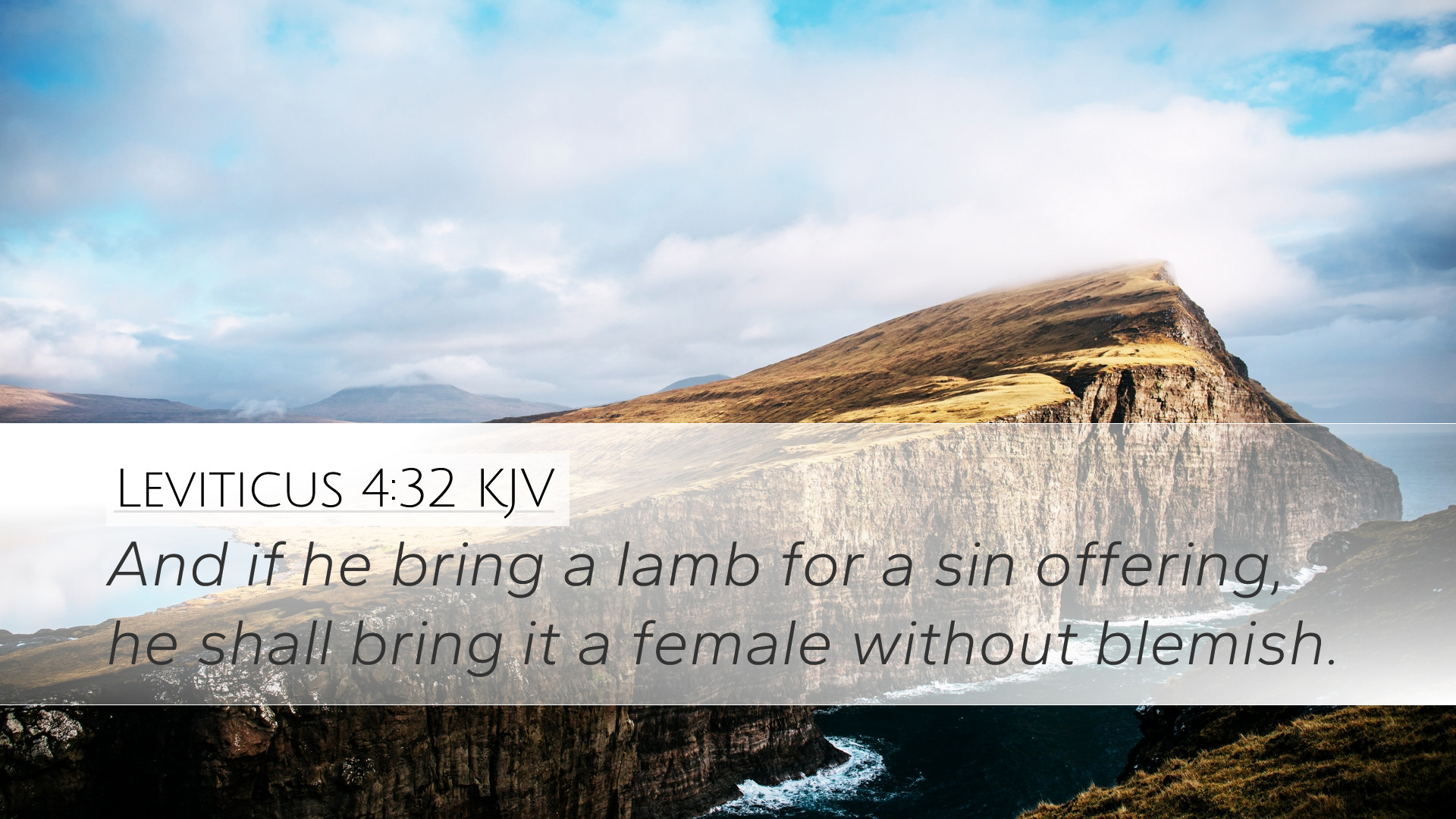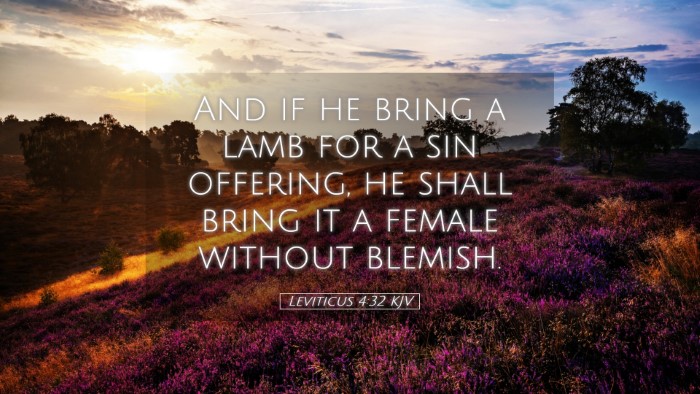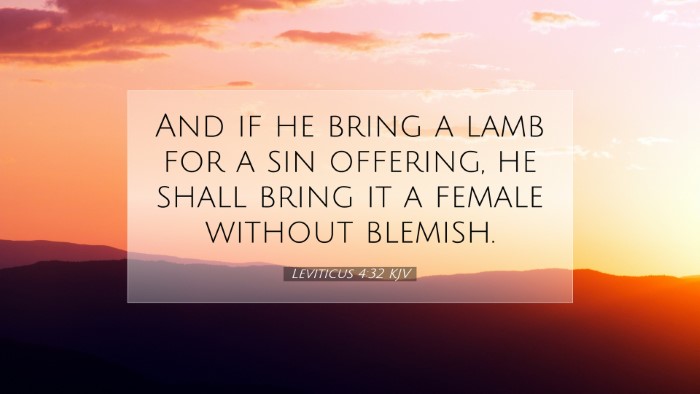Bible Commentary on Leviticus 4:32
Verse: "And if he bring a lamb for a sin offering, he shall bring it a female without blemish."
Introduction
The book of Leviticus provides essential instructions on holiness, sacrifices, and the proper conduct of worship in Israel. Chapter 4 specifically addresses the sin offering, a vital component of the sacrificial system that emphasizes atonement for unintentional sins. Leviticus 4:32 focuses on the standards required for a lamb offered for sin, which reveals much about God’s expectations and the nature of sin.
The Nature of Sin Offerings
Sin offerings were instituted as a means of making atonement for the people of Israel when they sinned unintentionally. According to Matthew Henry, the sin offering pointed to the seriousness of sin and the need for atonement; it shifted the focus toward God’s holiness and justice.
Albert Barnes elucidates that the purpose of these offerings was not merely to obtain forgiveness but to express remorse and the commitment to turn away from sin. The lamb, being a common sacrificial animal, symbolizes innocence, purity, and the debt of sin we owe to God.
Significance of the Lamb
The specific reference to a "female without blemish" in Leviticus 4:32 is significant. Adam Clarke notes that the requirement for the lamb to be female may have a deeper symbolic meaning. The female lamb represents gentleness, a nurturing quality, and is reminiscent of the maternal nature of God who desires to care for His creation.
Moreover, the phrase "without blemish" indicates the perfection required in sacrifices. This stipulation speaks to God’s standards of holiness and suggests the necessity of presenting God with the best of what we offer. Matthew Henry emphasizes that just as the Old Testament sacrifices foreshadowed Christ, who was the perfect Lamb of God, our offerings must also reflect a heart dedicated to holiness and integrity.
The Role of the Offeror
The passage invites consideration regarding the one presenting the sin offering. The sinner brings the lamb, recognizing their need for atonement. The act of bringing a sacrifice requires personal acknowledgment of sin. This reflects a theme in various commentaries, including that of Albert Barnes: genuine repentance must accompany any act of worship.
Henry further elaborates on the spiritual act of confession and heartfelt contrition that was necessary for the sin offering to be meaningful. It is not solely the act of offering the lamb that brings atonement, but the heart posture of the individual offering it, symbolizing their desire for relationship restoration with God.
Covenantal Context
The requirement of these sacrifices was deeply intertwined with the covenant relationship Israel had with God. They were a reminder of the consequences of sin and the love of God that provided a means of reconciliation. Adam Clarke brings to light that these regulations served not just as legal stipulations but as loving provisions from God to aid His people in maintaining their covenant standing.
Furthermore, the communal aspect of sacrifices must not be overlooked; sin offerings served as a collective acknowledgment of wrongdoing, reinforcing communal holiness and responsibility. As such, this verse provides a broader ecclesiological context for understanding how sin affects not just the individual but the entire community of faith.
Application for Today
For modern pastors, theologians, and students of the Word, the teachings of Leviticus 4:32 still resonate today. While we no longer offer animal sacrifices under the New Covenant, the principles of holiness, accountability, and offering our best to God remain crucial. In reflecting on the nature of our offerings—be they prayers, service, or financial support—we must ask ourselves if they are “without blemish.”
Moreover, the call to acknowledge sin remains relevant. The New Testament reaffirms the need for confession and addressing sin head-on. As laid out by Matthew Henry, these principles mirror the early church's practices of corporate confession and accountability among believers.
Conclusion
Leviticus 4:32 serves as a poignant reminder of God’s holiness, the seriousness of our sin, and the thoughtful nature of our worship. When we reflect on our offerings, let us strive to ensure they reflect our commitment to holiness and our desire for reconciliation through Christ, the ultimate sin offering. As elucidated in public domain commentaries, the heart of worship is not merely ritual but a relationship that must be nurtured in honesty, purity, and love for God’s standards.


